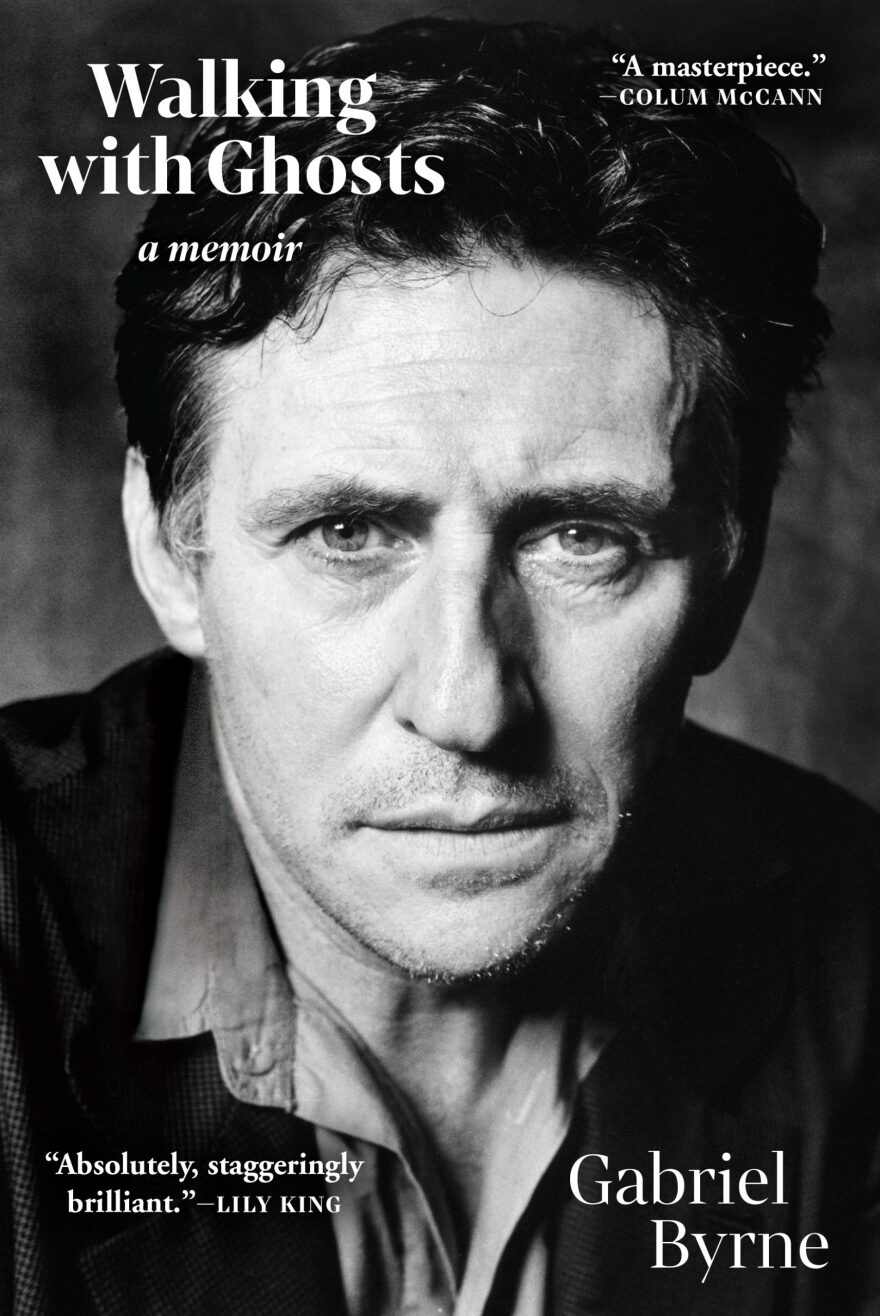Gabriel Byrne is a Hollywood leading man that many know from the blockbuster films Miller’s Crossing and The Usual Suspects. Byrne has also starred in more than 80 films, television series, and acclaimed Broadway performances. Now he’s added author to that resume.
Celebrity memoirs are not uncommon, but Byrne’s is uncommonly well written. In a lyrical narrative that is by turns uproariously funny and heartbreaking, he shares the story about growing up in Dublin and his sometimes trepidatious road to Hollywood, and reveals how inextricably bound his life as a famous actor is to the poignant echoes of his childhood.

Highlights from the Interview with Gabriel Byrne
On memory
I think that memory itself is a very fragmented thing. It doesn't have a linear character. You don't necessarily remember things chronologically. And we tend to remember things often in images and those images contain oftentimes emotions.
And when I set out to write the book, the reason I began it on that hill, which was very important to me when I was growing up, was that it allowed me a panorama of the physical landscape. And it also allowed me a panorama of my life in the physical landscape. We tend to remember the physical landscape of our other childhood in a non-changing way. When we think back to when we were seven and eight and we haven't visited that place for a long time, we tend to think of it as being the same. But what I found in that experience was that nothing really belongs to us except memory.
Even landscape that we think, is ours in our own possessive way. I'll give you an example. When I looked out over that hill and I saw that the farms that I had grown up with as a child had been replaced by apartment blocks, I resented it because I thought how can they interfere with my memory of what happened there? How can they? How can they restrict that landscape by putting in blocks of apartment? So when I continued on that road in that initial memory, and I came to the house that I used to live in, and I stood outside, as I was standing outside, the front door opened, and a man came out with his wife and his baby. And he asked me in a very suspicious way what I was doing there, and I said, oh, I used to live here. This was my home. And he didn't give any kind of response to that. I hadn't convinced him that I had a reason to be standing there. And when the door opened just a crack, I was able to see into the hallway. And of course the hallway was not the hallway of my childhood. And they put on an extension at the back, and that was no longer the kitchen that eight of us used to eat our meals in.
And I realized also that if the landscape doesn't belong to us, neither does home because home is something that you carry with you. Even if you stay in the same place, your idea of home changes. So what I was trying to do was to look back over those things that really meant things to me, like landscape, home, and reduced them to their simplicity, real simplicity, not sentimental or nostalgic or funny, or anything like that, just simple.
On still being a prolific actor
Well, I think it's much tougher for women as it is in so many areas of life. Hollywood doesn't really write movies for women over the age of 35. It doesn't write roles for married women or women with children. It doesn't. It still doesn't address, you know, women — maybe 50% of the population — and yet the amount of movies about women...and I don't just mean like an occasional movie where some girl is a superhero or, you know, they're basically playing roles that men play. I'm talking about really informed roles that allow women to be on the screen with the same complexity as a man. But then again most movies, in my opinion, don't have great complexity to them.
On loss
We all lose everything. Everything. That's ultimately our fate is to lose everything, but when we're here, we must live to the fullest of our ability. I think a great deal of unhappiness and discontent comes from expectation of life to be something that we don't do. I expect this to happen. So when it doesn't happen, we're unhappy because it doesn't happen. Desire and expectation are natural motivators. Things do not turn out always as we want them to turn out, or we expect them to turn out often. It's the unexpected that comes into our lives that's the reality — good and bad. So if we can accept the fact that, as George Harrison said, all things must pass... if we're going to establish within ourselves, the fact that we lose everything, it might give more significance and meaning to what we do.
TPR was founded by and is supported by our community. If you value our commitment to the highest standards of responsible journalism and are able to do so, please consider making your gift of support today.



